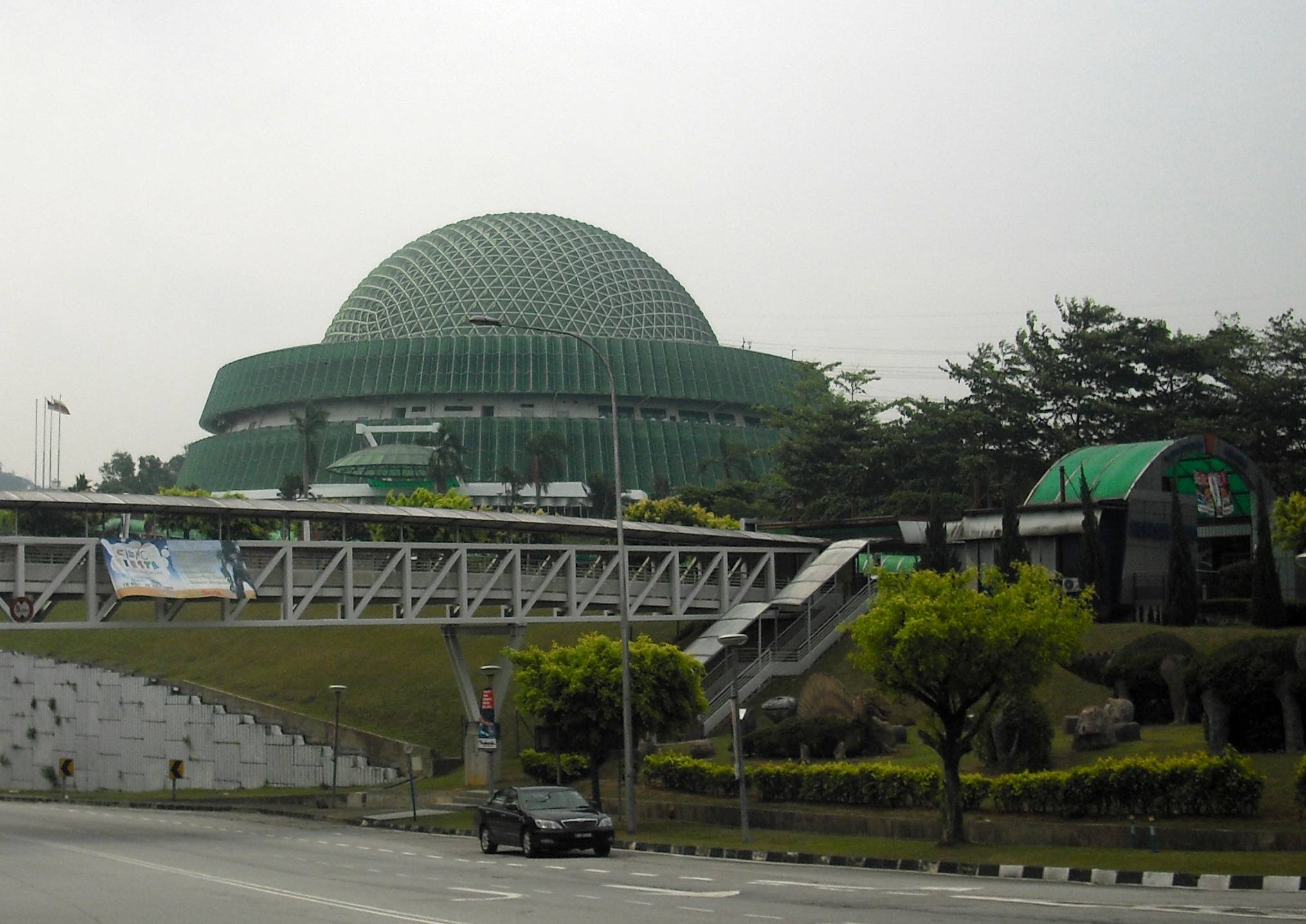NORMAN GOH, Nikkei staff writer *July 31, 2023 12:44 JST *
KUALA LUMPUR – Malaysia has launched programs to promote renewable energy in a country that has relied heavily on fossil fuels, hoping to lead Southeast Asia in transition to a greener economy.
But the ambitious targets, such as having renewables supply 70% of the total energy supply by 2050, have experts stressing that the government needs to roll out complementary regulatory frameworks to support the transition.
Unveiling the first phase of the National Energy Transition Roadmap (NETR) last week, the government identified 10 flagship catalyst projects and initiatives – ranging from constructing renewable energy zones and creating biomass demand to capturing carbon and promoting greener mobility.
These projects are expected to generate an estimated investment of more than 25 billion ringgit ($5.5 billion) and 23,000 jobs while reducing greenhouse gas emissions by the equivalent of more than 10,000 gigagrams of carbon dioxide per year, according to the road map.
Economy Minister Rafizi Ramli said at the launch event in Kuala Lumpur on July 27 that overall, NETR will open up investment opportunities of between 435 billion ringgit to 1.85 trillion ringgit in the country by 2050.
SEE ALSO 📷
Singapore to test the waters for tidal power with Japanese partners Chevron mulls floating LNG plant near Israel to supply Asia, Europe Rafizi also said that the government has “doubled down” on its renewable energy commitment, now aiming to have 70% of the country’s total energy supply from renewables by 2050 – higher than the previous target of 40% by 2035.
As a resource-rich country, the Malaysian economy has primarily relied on natural gas and oil in its energy mix. Renewables accounted for only 3.9% of the total energy supply in 2020, according to the ministry.
“As a nation, we are used to falling behind and lagging behind. And when others pace ahead, we rarely think about how we could be the ones leading others instead,” the minister said during his keynote address at the NETR launch. “With NETR, however, there is a real opportunity for us to lead Southeast Asia as the regional powerhouse in renewable energy.”
The economy minister mentioned that the government had lifted the export ban on renewable energy to increase potential yield from company participation in the energy transition and the establishment of a central electricity exchange that a single-market aggregator will operate.
As part of the NETR initiatives, UEM Group, a subsidiary of Malaysia’s sovereign wealth fund Khazanah Nasional, will develop a 1-gigawatt hybrid solar power plant in the country. The project is the largest of its kind in Southeast Asia and has attracted investments totaling 6 billion ringgit.
The second phase of the road map will be launched in mid-August, focusing on specific strategies to promote the energy transition, such as human capital and international cooperation.
Experts say how the government will implement the programs will be crucial, calling for greater clarification of the transition process.
“The government needs to provide greater clarification on how the long-termed goals can be materialized. It will depend on how the government initiates their policies into action in the upcoming years,” Anjulie Razak, a researcher at the University of Malaya, told Nikkei Asia.
Ijlal Hannan, an analyst at the strategic advisory company BowerGroupAsia, said that “complementary regulations and facilitative trade platforms” are necessary to promote renewables in Malaysia, referring to initiatives such as setting up an energy exchange and carbon pricing mechanism.
“I think [the renewable energy target] is ambitious, for sure. It’s likely that [non-renewable energy] will remain in use longer here, setting back on higher [renewable energy] capacity in the energy mix,” Ijlal said. “But better to have a moonshot goal than to aim conservatively.”
Rais Hussin, CEO of local think tank EMIR Research, said that the green and renewable energy sector is still new and requires the government’s intervention in all dimensions such as institutional, regulatory, fiscal, investment and technical.
“We should continue to push ahead and expedite our [investment policies] to position Malaysia as a potential carbon trading hub in the region with the rollout of carbon pricing mechanisms and sector-specific environmental, social and governance and climate-risk policy measures in the area of five key strategic sectors – namely electrical and electronics, digital economy, pharmaceuticals, aerospace and chemicals,” Rais said.
lofty goals but won’t even consider nuclear energy.
we do have a research reactor though. but let’s be real, the problem with nuclear at this point isn’t the tech but the governance (for maintenance, upkeep, etc). i’m a nuclear energy idealist myself, but those are legit concerns. i’m optimistic though, since it’s my understanding, there’s more evidence now for tech that’s not based on dirty and weaponisable fission material.
Nuclear energy is great only when we have the expertise and THE expertise to maintain, operate and especially handling the nuclear waste. NYTimes runs a piece on Taiwan nuclear waste dump [1], and why Taiwan is moving away from the nuclear energy is interesting to read (especially France reneged the agreement when Taiwan signed the deal with them to reprocess the waste [2]), it is just one of the many cases where nuclear energy is not the answer for all. Where do we dump our nuclear waste if we were to setup nuclear reactors, next to Prime Minister Office, Putrajaya, maybe ?
Wait…, I have an idea, Gua Musang in Kelantan or somewhere in Pahang might be ideal since there are ample of lands to re-propose for other usages despite the state government totally ravaging and deforest them for short-term profit. It is at least benefiting the peninsular if it is for energy bill, so to speak. Definitely not sarcastic. For East Malaysia, obviously not an issue, the current and former Chief Ministers there probably not knowledgeable enough to comprehend the opportunity to setting up nuclear waste land. When they learn about this potential and opportunity to make money, they will announce big projects.
[1] https://www.nytimes.com/2023/01/05/world/asia/lanyu-taiwan-nuclear-waste.html
yes, governance is absolutely a sticking point. Even to your points relating to expertise is very much a consequence of governance, and past conditions dictating your available choices (in this case, a nuclear reactor isn’t designed to be usable for all kinds of atomic power generation, their designs are always use-case specific. which is why the economies that committed to them using the technologies of post-ww2 cannot pivot so easily, as say China, who is still I think investing on scaling up thorium salt reactors – I think, I’m not sure what’s the state of the science right now.) Those current reactors are absolutely dirty, you will not find me disagreeing. Which is why I state specifically on the weaponisable part – there’s a political reason why nuclear energy sector threw its chips down almost immediately in the consumer market… because the waste is useable.
because the other problem with those economies, is because of their energy requirement, look at where they’re pivoting: coal & gas. Nuclear (ideally) is still one of the cleanest options, if we can figure out how to utilize the developments in the last 30 years. BUT, at the same time, I would also argue with myself and agree with you that the urgency has been reduced, since renewable energy tech has really improved in leaps and bounds.
… except for one problem that’s a genuine political and environmental concern - the rare earths and minerals needed to manufacture the photovoltaic cells, for example. the mining activity here has absolutely contributed to political instability and refugee crisis.
so to sum up, my arguments:
- no disagreements with the state of retail nuclear energy options
- no disagreements on the governance problem because retail options depend on tech that considers having nuclear waste to be a plus
- pointing out new scientific research is ongoing
- the issue with existing retail options is that they’re very specific to the tech they’re serving, so it cannot pivot
- this is where newly rich economies can lead the way e.g china
- shuttering nuclear reactors has actually caused an uptake in coal and gas-powered plants e.g Japan, Germany, I will have to look up Taiwan but I won’t be surprised
- renewable energy much like most of computing tech, is also a contributing actor in a lot of political instability in the global south.
Don’t get me wrong. You are obviously more knowledgeable in nuclear energy that I do. I am just the average person pointing out the obvious and recall the numerous disasters [1, 2] that vividly paint the importance of having the expertise. Japan is about to release nuclear waste water into ocean [4] despite international watchdogs and environmental groups protest because Japan has no other options.
I am rather pessimistic on our country state of nuclear energy technology and readiness, even with the technology transfer from foreign enterprise, it comes down to every single engineer, technician, and operator. When we look at the current civil servant and public service, it is very unconvincing to go with this route without taking a huge risk.
[1] Chernobyl, SSR (Soviet Union) [3]
[2] Fukushima, Japan [3]
[3] https://en.wikipedia.org/wiki/Nuclear_and_radiation_accidents_and_incidents
[4] https://edition.cnn.com/2023/07/04/asia/japan-fukushima-wastewater-explainer-intl-hnk/index.htmlOn that part i agree. The examples you cite are also of a piece of what I mentioned about existing retail-side tech, so no arguments there. Fukushima especially exposed that even in systematic disciplined Japan, staff was cutting corners. And govt response since leaves something to be desired, speaking as someone who was in Tohoku a few years after.



